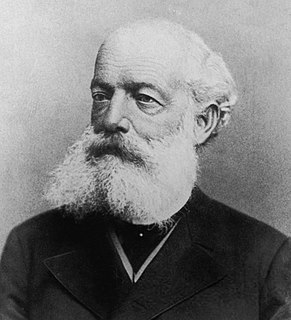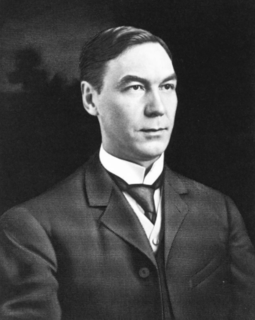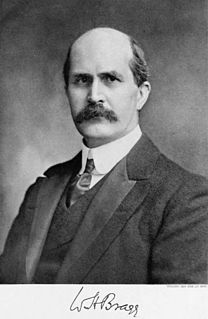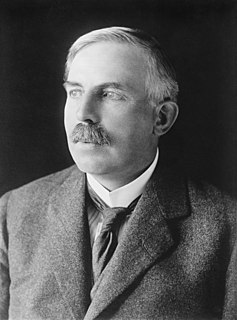A Quote by William James
The self-same atoms which, chaotically dispersed, made the nebula, now, jammed and temporarily caught in peculiar positions, form our brains; and the 'evolution' of brains, if understood, would be simply the account of how the atoms came to be so caught and jammed.
Related Quotes
A somewhat casual observer from outer space might well deduce that the course of evolution in this planet had produced a species of large four-wheeled bugs with detachable brains; peculiar animals which rested when they sent their brains away from them but performed in rather predictable manner when their brains were recalled.
The question whether atoms exist or not... belongs rather to metaphysics. In chemistry we have only to decide whether the assumption of atoms is an hypothesis adapted to the explanation of chemical phenomena... whether a further development of the atomic hypothesis promises to advance our knowledge of the mechanism of chemical phenomena... I rather expect that we shall some day find, for what we now call atoms, a mathematico-mechanical explanation, which will render an account of atomic weight, of atomicity, and of numerous other properties of the so-called atoms.
The Universal mind is not only intelligence, but it is substance, and this substance is the attractive force which brings electrons together by the law of attraction so they form atoms; the atoms in turn are brought together by the same law and form molecules; molecules take objective forms and so we find that the law is the creative force behind every manifestation, not only of atoms, but of worlds, of the universe, of everything of which the imagination can form any conception.
Claims that some form of consciousness persists after our bodies die and decay into their constituent atoms face one huge, insuperable obstacle: the laws of physics underlying everyday life are completely understood, and there's no way within those laws to allow for the information stored in our brains to persist after we die.
If the cosmos isn't finite, then far, far away, floating duplicates of your brain - with all its experiences, thoughts, and emotions - are occasionally (and temporarily) thrown together by the random combining of atoms. Such 'Boltzmann brains,' as they're called, are a disturbing consequence of an unlimited universe.
Life is not made of atoms,it is merely built out of them. What life is actually 'made of' is cycles of cause and effect, loops of causal flow. These phenomenon are just as real as atoms - perhaps even more real. If anything, the entire universe is actually made from events, of which atoms are merely some of the consequences.
The beauty of a living thing is not the atoms that go into it, but the way those atoms are put together. Information distilled over 4 billion years of biological evolution. Incidentally, all the organisms on the Earth are made essentially of that stuff. An eyedropper full of that liquid could be used to make a caterpillar or a petunia if only we knew how to put the components together.
I love individuals. I think people are terrific as I meet and get to know them. I like imagination. I like the freedom that this society manages to parcel out to us in the midst of the rest of what they do to you. I also like thinking about the fact that the atoms in me are the same atoms that are in all the rest of the universe, and that every one of those atoms came from the middle of a star. In other words, it's only me out there.
Moving in space, the atoms originally were individual units, but inevitable they began to collide with each other, and in cases where their shapes were such as to permit them to interlock, they began to form clusters. Water, air, fire, and earth, these are simply different clusters of the changeless atoms.
From the results so far obtained it is difficult to avoid the conclusion that the long-range atoms arising from collision of alpha particles with nitrogen are not nitrogen atoms but probably atoms of hydrogen, or atoms of mass 2. If this be the case, we must conclude that the nitrogen atom is disintegrated under the intense forces developed in a close collision with a swift alpha particle, and that the hydrogen atom which is liberated formed a constituent part of the nitrogen nucleus.









































